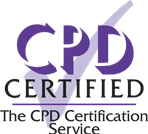
What Can Cause PTSD? Looking Beyond Trauma
Post-Traumatic Stress Disorder (PTSD) is a mental health condition that individuals can experience following an extremely stressful or frightening event, either by experiencing it first-hand or by witnessing it.
However, recent research has found that significant life events such as divorce and unemployment – can trigger at least as many PTSD symptoms as stereotypically identified traumatic events.
As Dr Manan Thakrar, Consultant Psychiatrist at The London Psychiatry Centre, explains, “You may be surprised to learn that life events such as marital separation or being laid off from work – events that millions of people experience every day – can trigger PTSD. This research validates the concerns of those who are experiencing PTSD symptoms, but believe they are not eligible for diagnosis because they believe they have not experienced something like a war or a physical assault. In addition, these symptoms – including irritability, low mood and difficulty sleeping – overlap with those of other mental health issues including depression, anxiety and stress. If you are experiencing any of these, or other symptoms associated with PTSD, seeking help can support you in moving on from the event, and feeling more like yourself.”
In this article, we will explore the types of events that can cause PTSD, and which factors can increase your risk of developing the condition.
What Can Cause PTSD? Events That Can Trigger PTSD
PTSD is often associated with traumatic events such as military combat or serious accidents. However, it is increasingly understood that it can also be caused by a range of life events that may not be stereotypically ‘traumatic’, but are still deeply distressing, worrying or overwhelming. These experiences can be particularly difficult if they involve a loss, fear or long-term uncertainty.
Directly Experienced Traumatic Events
These are the types of events traditionally associated with PTSD:
- Serious accidents such as car crashes
- Violence such as physical, verbal or sexual assault
- Childhood abuse or neglect
- Domestic abuse
- Natural disasters, like earthquakes or floods
- Military combat or war zone exposure
Witnessed or Learned About Traumatic Events
Some people develop PTSD symptoms not from experiencing a traumatic event themselves, but from:
- Witnessing violence to others in person or through other mediums, such as online
- Learning about a traumatic event affecting someone close, such as a sudden death
- Repeated exposure to traumatic events (sometimes experienced by emergency workers, journalists or therapists)
This is known as secondary PTSD or secondary traumatic stress (STS). The COVID-19 pandemic resulted in increased interest around the topic of of STS, with a significant number of individuals at risk of the condition after watching loved ones fall seriously ill or pass away, as well as frontline workers who dealt with high
Everyday Life Events
What’s often less acknowledged is that non-violent but significant life events can also cause PTSD. These may not be considered ‘traumatic’ in the traditional sense, but they can still have a profound psychological impact, especially if they come with feelings of helplessness, shame or uncertainty. These include:
- Divorce or separation, particularly if it is caused by infidelity, or is acrimonious (marked by feelings of anger, bitterness and resentment)
- Pregnancy loss or a traumatic birth
- Job loss or long-term unemployment
- Serious illness or diagnosis – either your own or that of a loved one
- Financial hardship
- Bullying, stalking or harassment, whether in-person or online
- Being a carer for someone with a severe disability, or chronic or terminal illness
These types of experiences are sometimes dismissed by others as “not severe enough” to cause trauma, but what matters is how your nervous system responds to the stress – not what others perceive as traumatic.
What Can Increase Your Risk Of PTSD?
Not everyone who goes through a distressing experience will develop PTSD. Several factors can influence whether someone develops symptoms:
- Previous mental health difficulties
- A family history of mental health conditions
- Lack of social support following the event
- Experiencing trauma earlier in life, especially in childhood
- Chronic stress or repeated exposure to distressing circumstances
- Lower level of education
Women are two to three times more likely to develop PTSD than men due to a range of environmental, psychological and biological factors.
Barriers To Care
Despite growing awareness of PTSD, many people still go undiagnosed for months or even years. One of the main reasons for this is a lack of understanding about what constitutes trauma. Many people associate PTSD solely with extreme events and don’t realise that difficult life events can also lead to post-traumatic symptoms.
Another barrier is the stigma that still surrounds mental health. People may feel ashamed or guilty for struggling, especially if they believe that their experience “wasn’t bad enough” to justify a diagnosis. Others may downplay their symptoms, assuming they may pass with time, or they may misattribute symptoms like sleep problems, low mood or avoidance to unrelated issues like stress or burnout.
Practical barriers can also delay diagnosis and treatment. Long waiting lists, difficulty accessing mental health services, and lack of culturally sensitive care can all contribute to people not getting the help they need. For those affected by secondary trauma, the more gradual and less obvious onset of symptoms can make it even harder to recognise when something is wrong.
When To Seek Help For PTSD
If you’ve experienced a distressing event, whether directly or indirectly, and are noticing changes in your mood, sleep, relationship or ability to function day to day, it’s important to seek support from a mental health professional. PTSD doesn’t always present immediately after a traumatic experience or life event, and symptoms can surface weeks, months or even years later. These might include flashbacks, nightmares, irritability, numbness, feeling on edge or avoiding reminders of the events.
You don’t need to wait until things become unbearable. If something doesn’t feel right and it’s affecting your quality of life, speaking to someone about it can be the first step towards feeling better. With the right support and treatment, most people with PTSD can make a full recovery.
To book a consultation, call 020 7580 4224, or book online using our easy-to-use form.


